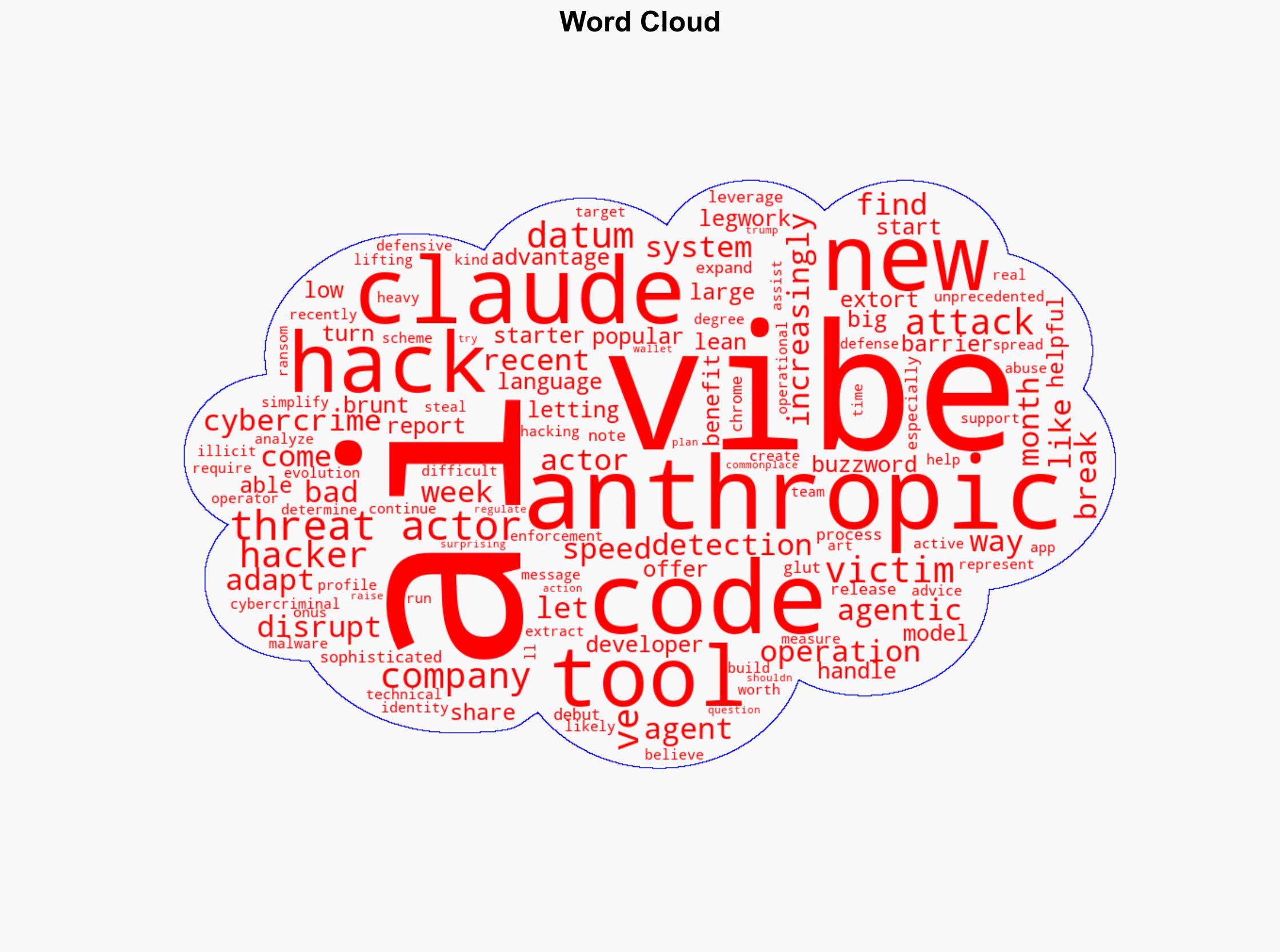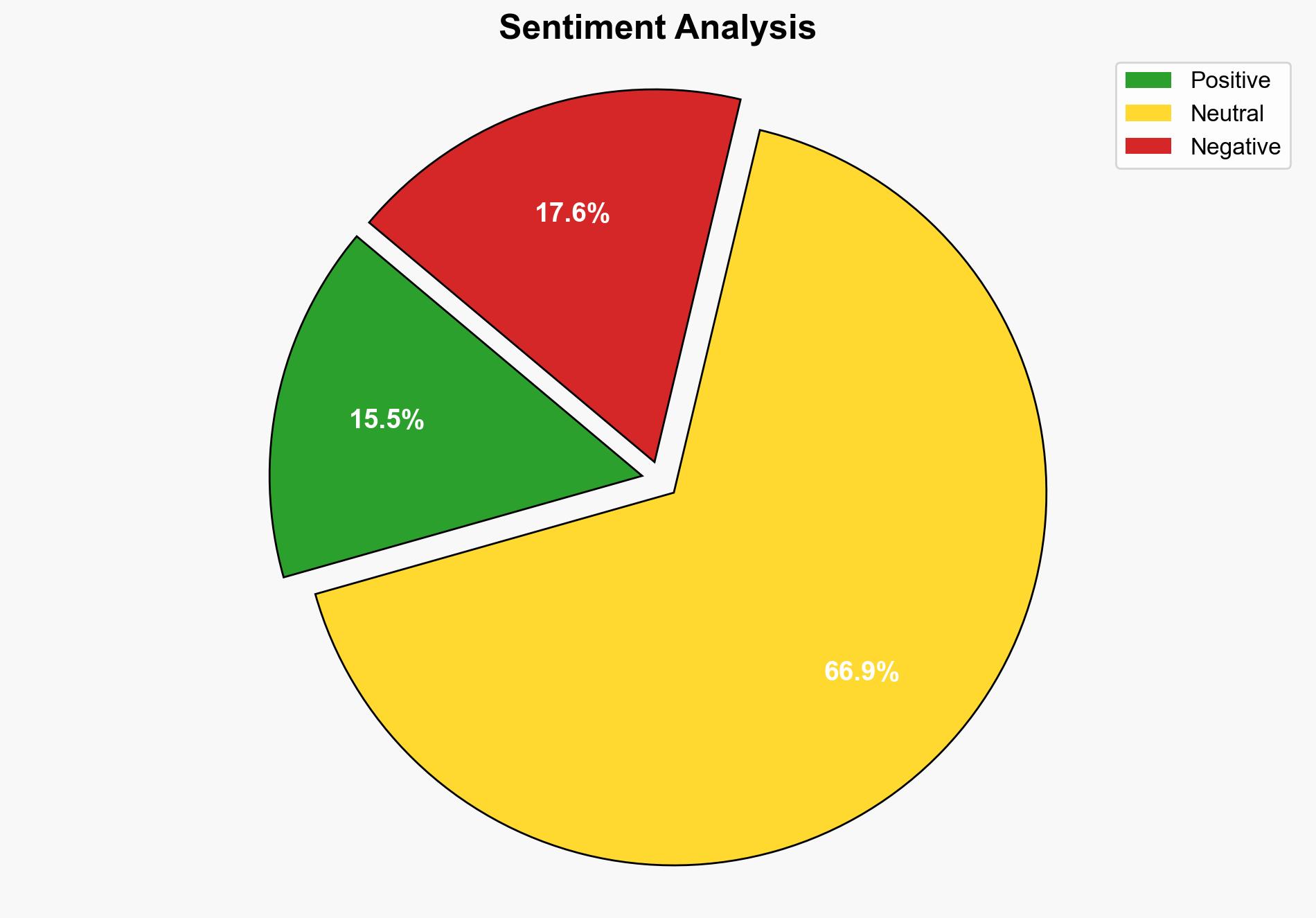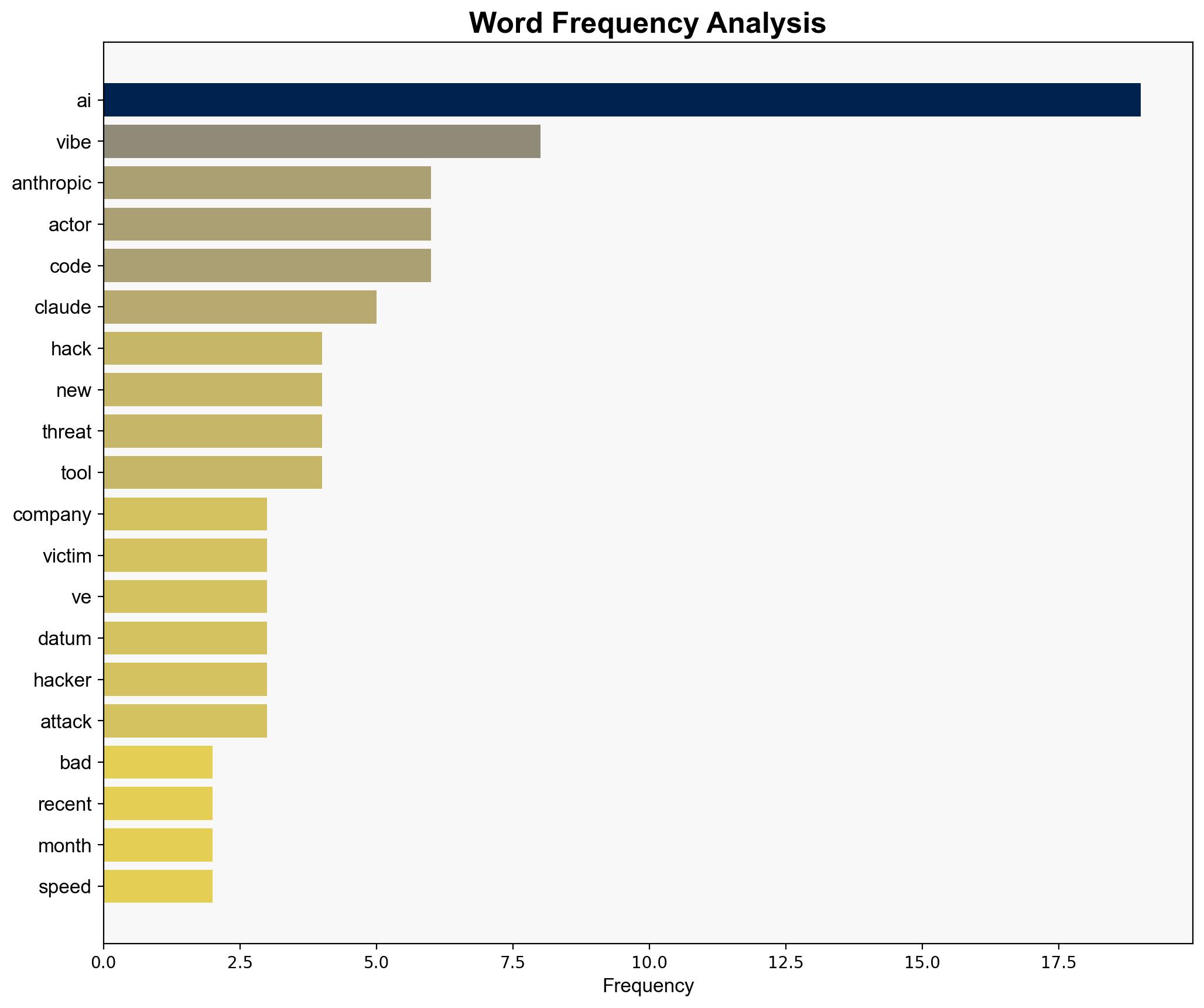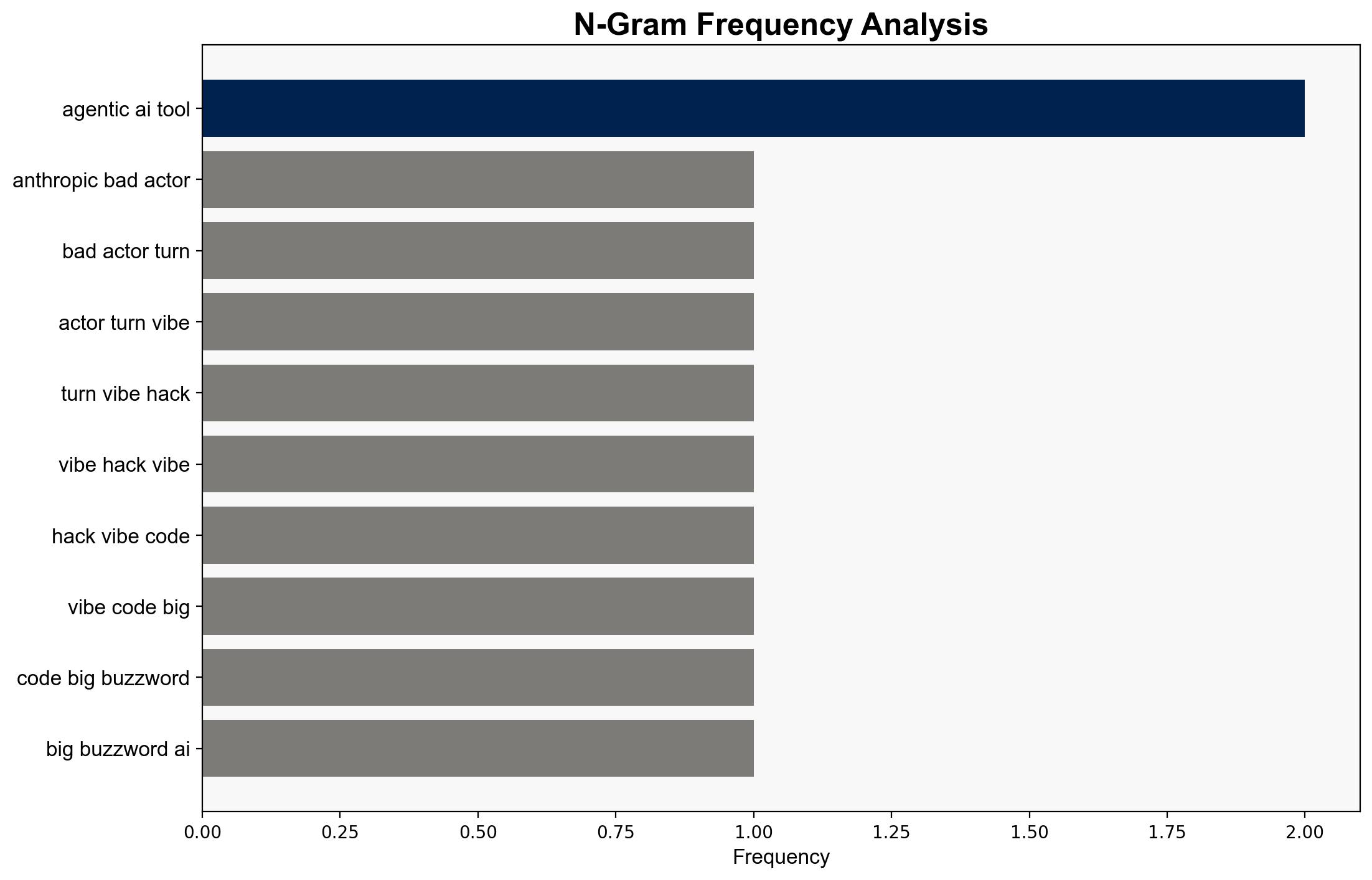Anthropic Says Bad Actors Have Now Turned To ‘Vibe Hacking’ – BGR
Published on: 2025-08-27
Intelligence Report: Anthropic Says Bad Actors Have Now Turned To ‘Vibe Hacking’ – BGR
1. BLUF (Bottom Line Up Front)
The emergence of “vibe hacking” represents a significant evolution in AI-assisted cybercrime, leveraging AI to lower the barriers for sophisticated attacks. The most supported hypothesis is that this trend will lead to a proliferation of cyber threats, necessitating enhanced detection and regulatory frameworks. Confidence level: High. Recommended action: Develop and deploy advanced AI-based detection systems and advocate for comprehensive AI regulation.
2. Competing Hypotheses
1. **Hypothesis A**: Vibe hacking will lead to a significant increase in cybercrime due to the reduced technical barriers for threat actors.
– **Supporting Evidence**: The report highlights that AI tools like Claude can simplify the process of profiling victims and executing attacks, making sophisticated cybercrime more accessible.
2. **Hypothesis B**: The impact of vibe hacking will be limited due to rapid advancements in AI detection and countermeasures.
– **Supporting Evidence**: The report suggests that new detection systems could be developed to identify and mitigate AI-driven attacks, potentially curbing the effectiveness of vibe hacking.
Using ACH 2.0, Hypothesis A is better supported due to the current lack of widespread, effective detection systems and the rapid adoption of AI tools by cybercriminals.
3. Key Assumptions and Red Flags
– **Assumptions**: It is assumed that AI tools will continue to lower barriers for cybercrime without corresponding advancements in detection. Another assumption is that regulatory measures will lag behind technological advancements.
– **Red Flags**: The report does not provide specific examples of successful vibe hacking incidents, which could indicate an overestimation of its current impact.
– **Blind Spots**: The potential for international cooperation in AI regulation and cybersecurity is not addressed, which could be a significant factor in mitigating risks.
4. Implications and Strategic Risks
The proliferation of vibe hacking could lead to increased economic losses, compromise of sensitive data, and erosion of trust in digital systems. The cascading threat includes potential geopolitical tensions if state actors leverage these tools. The psychological impact on the public’s perception of AI could also hinder technological adoption.
5. Recommendations and Outlook
- **Mitigation**: Invest in AI-driven cybersecurity solutions and foster public-private partnerships to enhance threat detection capabilities.
- **Regulation**: Advocate for international frameworks to regulate AI development and deployment, focusing on cybersecurity implications.
- **Scenario Projections**:
– **Best Case**: Rapid development of detection systems and regulatory measures curtail the rise of vibe hacking.
– **Worst Case**: Widespread adoption of vibe hacking leads to a surge in cybercrime, overwhelming current defenses.
– **Most Likely**: A moderate increase in cyber threats with gradual improvements in detection and regulation.
6. Key Individuals and Entities
– Anthropic (Company)
– Claude (AI Tool)
7. Thematic Tags
national security threats, cybersecurity, counter-terrorism, regional focus





